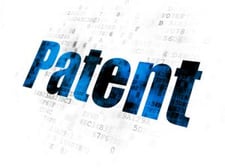
According to the United States Patent and Trademark Office ("PTO"), an applicant for a patent that tries to challenge the PTO's denial of a patent by filing a civil action in federal district court should lose even if it wins, in that the PTO contends that the applicant has to pay the PTO's attorneys' fees regardless of the civil case's outcome. The statutory language on which the PTO relies refers to the payment of the PTO's "expenses," but does that term encompass attorneys' fees? The Federal Circuit of Appeals, sitting en banc, will now determine the issue, in a case called Nantkwest v. Matal.
In Nantkwest, the Plaintiff was denied registration of a patent by the PTO. Rather than appealing the denial of the administrative ruling to the Court of Appeals for the Federal Circuit, Nantkwest opted for the alternative allowed by 35 U.S.C. Section 145, which is to file a civil action against the PTO in district court challenging the denial of patent registration. The Section 145 proceeding is a standalone, civil action, not an appeal, and it can be filed in the applicant's home district under 28 U.S.C. Section 1391(e)(1)(C) (venue over action where the defendant is a federal employee or officer).
Six years ago, in Kappos v. Hyatt, 566 U.S. 431 (2012), the Supreme Court interpreted Section 145 in a way that made filing a civil action in district court a more attractive option for applicants who wished to challenge denial of a patent. Hyatt rejected the PTO's argument that the district court could not consider new evidence in a Section 145 action. The Court ruled that Section 145 permitted introduction of any new evidence generally permitted in federal court. Hyatt thus made clear that Section 145 permits an applicant to choose to forego introducing evidence at the administrative stage that as a tactical matter is more suited for consideration in a civil trial court setting. The applicant can also introduce additional types of evidence, such as live expert testimony, that the PTO generally does not accept. Hyatt, 132 U.S. at 435. The Court further held that, if new evidence is before the district court, the court "cannot meaningfully defer to the PTO's factual findings" because the PTO will have "considered a different set of facts." Id. at 445. The district judge essentially considers eligibility for a patent on a de novo basis.
Section 145 includes a provision shifting all "expenses" of the proceeding to the applicant, regardless of the outcome: "[a]ll the expenses of the proceedings shall be paid by the applicant." Prior to Hyatt, the PTO's attorneys had not interpreted "expenses" in Section 145 to include attorneys' fees. After Hyatt, though, the PTO began seeking attorney's fees, arguing that it was entitled to reimbursement of a pro rata share of salaries of staff attorneys as part of the "expenses" to which the PTO is entitled under Section 145.
The burden of paying the PTO's attorneys' fees considerably lessens the practicality of pursuing a Section 145 action. The amicus brief filed by the American Intellectual Property Law Association in Nantkwest notes that the attorneys' fees requests made by the PTO are such that "an applicant seeking to exercise its Section 145 rights easily could expect to pay the PTO multiple times the cost of what it already had paid to prosecute its patent application, not including the cost of its own attorneys." Amicus Brief, p. 17. Similarly, the amicus brief of the Intellectual Property Owners Association asserts (pp. 18-20) that the PTO's "draconian" approach will "preclude[e] access to federal district court . . . for anyone that cannot afford to pay potentially hundreds of thousands of dollars." The circumstances suggest that making the Section 145 action too expensive an option for many applicants is precisely the intent behind the PTO's assertion that it is entitled to attorneys' fees as Section 145 "expenses."
However, the PTO's interpretation will be reviewed in Nantkwest, and it is difficult to imagine how the Federal Circuit sitting en banc could do anything but rule against the PTO, given the fact that the statute does not expressly mention attorneys' fees. Interpretation of federal statutes follows "'the bedrock principle known as the American Rule: Each litigant pays his own attorney's fees,'" unless there is "'explicit statutory authority'" for fee shifting. Baker Botts L.L.P. v. ASARCO LLC, 135 S. Ct. 2158, 2164 (2015) (internal quotation marks and citations omitted).
Section 145 lacks that explicit Federal Circuit authority. As the dissent in the panel decision, Nantkwest, Inc. v. Matal, 860 F.3d 1352, 1363-64 (Fed. Cir. 2017) (Stoll, J., dissenting), pointed out, in instances where Congress has defined "expenses" to include attorneys' fees, it has done so expressly, e.g., 28 U.S.C. Section 1447(c) (an order remanding a removed case "'may require payment of just costs and any actual expenses, including attorney fees'") (quoting 28 U.S.C. Section 1447(c)). The dissent also pointed out, 860 F.3d at 1361-62, that elsewhere in the patent statute, when Congress included a fee-shifting provision, it expressly mentioned fees. 35 U.S.C. Section 285 (allowing award of "reasonable attorney fees" "in exceptional cases"). In addition, under the PTO's interpretation, the statute would be an oddity in that it would shift attorneys' fees regardless of which party prevails. Nantkwest, 860 F.3d at 1365 (Stoll, J., dissenting) ("[W]hen Congress has chosen to depart from the American rule by statute, virtually every one of the more than 150 existing federal fee-shifting provisions predicates fee awards on some success by the claimant.") (alteration and emphasis in original; internal quotation marks and citation omitted). I expect the Federal Circuit to rule that the requisite "explicit statutory authority" for an award of attorneys' fees is absent from Section 145.
